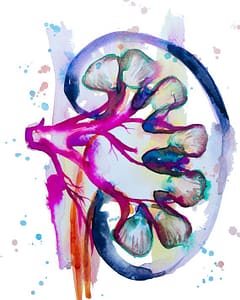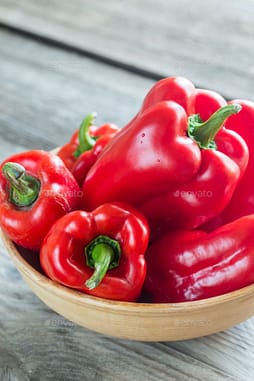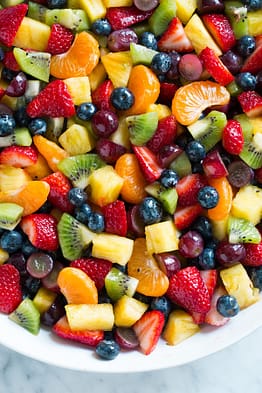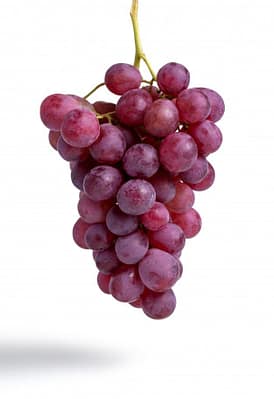Best food for your kidney
what you eat and drink when you have kidney stones is important here are some guidelines currently being recommended
by doctors citrus, you may have heard that eating foods with a lot of calcium is one of the main causes of kidney stones recent research says the opposite a low calcium diet increases your risk of developing stones citrus fruits and their juices can help reduce or block the formation of stones due to naturally occurring citrate good sources of citrus include lemons oranges and grapefruit other recommended foods for kidney stone sufferers include milk yogurt cottage cheese and other types of cheeses vegetarian sources of calcium include legumes calcium set tofu dark green vegetable nuts and seeds vitamin D also make sure you eat plenty of foods that are high in vitamin D. Vitamin D helps the body absorb more calcium vitamin D is found naturally in fatty fishes such as salmon it’s also present in egg yolks and a variety of cheeses stay hydrated what you drink is just as important as what you eat when you have kidney stones fluids, especially water help to dilute the chemicals that form stones currently doctors recommend that you drink at least 12 glasses of water a the day when you have kidney stones the goal of this video has been to provide quick basic answers to the question of what is the best food to eat when you have kidney stones but remember you should always rely only on a doctor for professional advice related to your health or diet.
Greek yogurt .
Greek yogurt may be beneficial for those with kidney stones because it is a good source of calcium, which can help to prevent the formation of kidney stones. However, it’s important to note that individuals with kidney stones should also limit their intake of foods high in oxalates, such as spinach and beet greens, as well as salt and animal protein to decrease the risk of forming new stones. It is always a good idea to consult with a doctor or a dietitian for personalized advice.
Cabbage.
This round, leafy vegetable is an extraordinary source of minerals and vitamins like vitamins K, C, and many B vitamins.
It is a phenomenal digestion booster as it contains roughage that promotes regular bowel movements. On top of it, Cabbage is low in sodium, potassium, and phosphorus.
Bell peppers
These brightly colored vegetables are a striking source of nutrients, but low in potassium. Bell peppers or capsicum are an excellent source of the powerful antioxidant vitamin C. They are rich in vitamin A, too. Vitamin A is a major nutrient for immune function which is usually compromised in people with kidney disease. Plus they can be cooked in a variety of ways, whether roasted, sauteed or stuffed, they taste amazing!
Blueberries
Blueberries are loaded with nutrients. These sweet purple-blue berries are considered to be the best source of antioxidants, greatly helping in kidney detoxification. Studies suggest the antioxidants in blueberries, known as anthocyanins, may protect against certain cancers, diabetes, and heart disease. And when it comes to your kidneys blueberries are perfect as they are low in sodium, potassium, and phosphorus making it easy to maintain kidney health. Remember to add a handful of blueberries to your diet. Enjoy frozen blueberries or buy them fresh,
Cauliflower
This vegetable is packed with nutrients and vitamins K, C, and B folate. Cauliflower becomes a crucial addition to a kidney-friendly diet, as it is rich in fiber and full of anti-inflammatory compounds. Add cauliflower to your stir fry or bake them with added spices! For a low-potassium dish, use mashed cauliflower as a substitute for potatoes!
Egg whites
Eggs are a staple in many of our kitchens! Egg whites are a better option for managing kidney health. Egg yolks are high in phosphorus, so you should probably avoid them if you’re looking for healthy food for the kidneys. Research suggests that egg whites are a source of high-quality kidney-friendly protein. It is an outstanding choice for people who are on dialysis, with higher protein needs and less phosphorus. Prepare an egg white omelet or a sandwich, add the whites of a hard-boiled egg into your salad or just eat them straight up!
Onion
Onion breath can be a turn-off but onions can be wonderful salt alternatives! Very low in sodium, onions impart a whole bunch of flavor to your kidney-friendly dish. Wait, there’s more! Onions are rich in vitamins C and B, and manganese and carry prebiotic fibers which support the growth of ‘good’ bacteria in the gut, promoting digestive and kidney health. If you’re feeling brave you can eat onions raw as a part of a salad or saute them in olive oil.
Olive oil
Another kitchen staple in many homes. Olive oil is a source of healthy fat and is phosphorous-free at the same time. It helps those who are dealing with advanced kidney disease keep or gain weight, who have probably lost a few pounds. Olive oil is referred to as healthy fat, as it contains anti-inflammatory properties because of the presence of monounsaturated fats like oleic acid. Use olive oil in cooking or as a salad dressing or even marinate your vegetables, it is a versatile tool!
Garlic
Just like onions, garlic also has a pungent smell! Being low in sodium, garlic becomes a great alternative for salt in kidney-friendly recipes. It provides many nutritional benefits. Like onions, garlic is also an excellent source of manganese, vitamin C, B, and sulfur compounds which have anti-inflammatory properties. Adding garlic to a recipe not only provides health benefits but also adds a stunning flavour to your food,
Red grapes
These small fruits are packed with nutrients. Red grapes contain antioxidants called flavonoids which reduce inflammation while also being rich in vitamin C, a type of flavonoid present in red grapes that promotes heart health and protects against cognitive decline and diabetes. Eat them as a snack or to quench the thirst of those on fluid restriction because of dialysis!
Sea bass
Sea bass is low in phosphorus and high in protein. It contains healthy fats called omega-3s that lower inflammation and can reduce anxiety and depression. Sea bass is a better option compared to other seafood. We recommend pan-fried sea bass with lemon-garlic herb sauce or oven-baked!
Kale
Kale is the king of all super healthy greens! It is one of the healthiest plant foods in existence with powerful medicinal properties. Kale is loaded with strong antioxidants and vitamins. It is known to regulate blood sugar levels, and since diabetes is a main risk factor associated with kidney disease, kale helps manage diabetic nephropathy and can detoxify the kidneys. Remember to watch how much kale you indulge in as it contains medium potassium levels. I think we all know enough ways to add kale to our diet! From sandwiches to lasagna rolls, from veggie bowls to plates of pasta, and from salads to smoothies, kale goes with almost everything! Macadamia nuts Usually nuts are high in phosphorus and are therefore not allowed for people with kidney disease. But, macadamia nuts are an exception! These nuts are low in phosphorus in comparison to widely consumed almonds and peanuts. Not only this but macadamia nuts are loaded with healthy fats, B vitamins, copper, magnesium, and iron, and they’re low in sodium.
Bulger
Bulgur is a whole-grain wheat product that makes a fantastic kidney-friendly alternative as it is low in potassium and phosphorus. It is an extraordinary source of plant-based protein and is full of dietary fiber. Bulger is a nourishing grain as it houses magnesium, iron, and B vitamins.
Skinless chicken
What’s better than a juicy baked chicken breast with seasonings like garlic powder, paprika, black pepper, lemon, and olive oil? I know, you must be drooling! It’s good to know that skinless chicken breast with moderate spices can be included in the diet of kidney patients. Skinless chicken breasts contain less sodium, potassium, and phosphorus than skin-on chicken. Usually, people with kidney diseases need to restrict their protein intake, but skinless chicken provides a suitable amount of high-quality protein.
Radish
This root vegetable with a crisp texture is a good addition to the list of healthy food for the kidneys! Radishes are very low in potassium and phosphorus. They’re also high in vitamin C, an antioxidant that can decrease the risk of heart disease and cataracts. Eat it raw in a salad or add it to your sauteed veggies, it’ll enhance the flavor of your meal due to its peppery taste!
Pineapple
This sweet fruit is low in potassium so it’s a great alternative to high-potassium fruits like oranges, bananas, and kiwis. In addition, pineapple is rich in fiber, vitamin C, manganese, and bromelain, an enzyme that helps in lowering inflammation.
Cranberries
These tiny fruits are beneficial for both the urinary tract and the kidneys. Cranberries contain a type of compound that prevents bacteria from attaching to the lining of the urinary tract and bladder, thereby lowering the chances of getting a painful Urinary Tract Infection, commonly known as a UTI. If you’ve ever had one, eating cranberries is an easy way to avoid this painful condition. These are also low in potassium, phosphorus, and sodium. You can drink cranberry juice as long as it doesn’t have any added sugar.
Shiitake mushrooms
Last but not least are the shiitake mu rooms! These can be an excellent alternative to meat for people with kidney disease, who restrict protein. Shiitake mushrooms are a good source of plant-based proteins along with B vitamins, copper, and selenium. These mushrooms are lower in potassium than white mushrooms, making them a good choice for a kidney related healthy diet. Toss them in your stir-fry, pasta or use them as topping on your favorite homemade pizza.
broccoli
Broccoli is a good food choice for people with kidney stones because it is high in antioxidants and has been shown to reduce the risk of kidney stones. Additionally, broccoli is a good source of vitamin K and vitamin C, which can help to strengthen the bones and protect against kidney damage. However, it is important to speak with a healthcare professional before making any dietary changes if you have kidney stones or other medical conditions.










